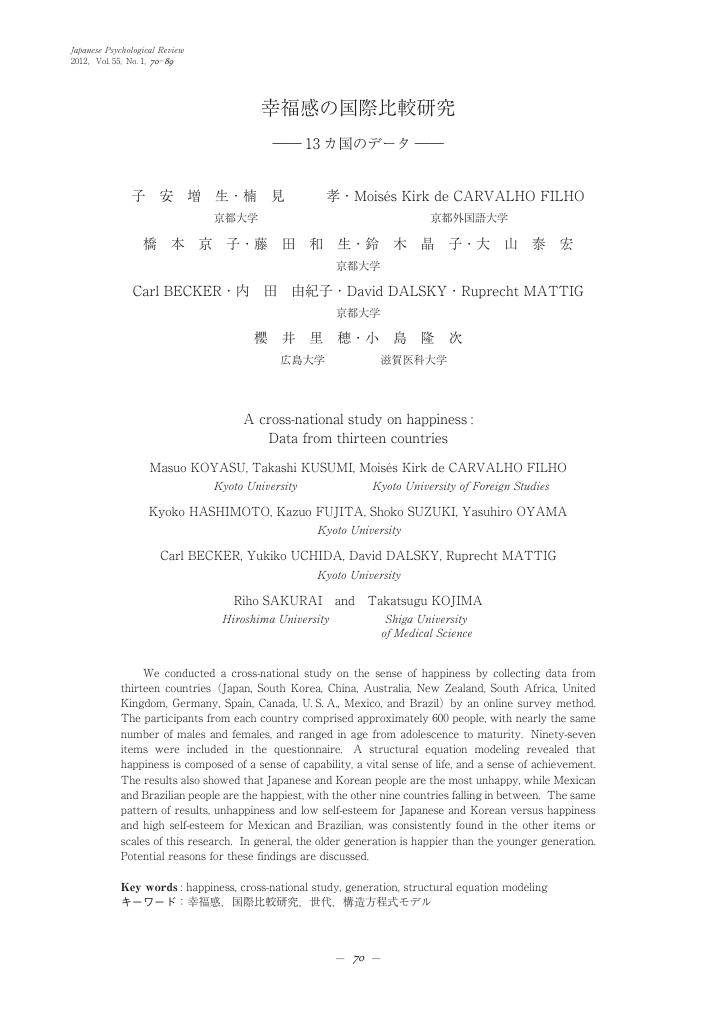9 0 0 0 OA 幸福感の国際比較研究 ―13カ国のデータ―
- 著者
- 子安 増生 楠見 孝 de Carvalho Filho Moisés Kirk 橋本 京子 藤田 和生 鈴木 晶子 大山 泰宏 Becker Carl 内田 由紀子 Dalsky David Mattig Ruprecht 櫻井 里穂 小島 隆次
- 出版者
- 心理学評論刊行会
- 雑誌
- 心理学評論 (ISSN:03861058)
- 巻号頁・発行日
- vol.55, no.1, pp.70-89, 2012 (Released:2018-08-18)
2 0 0 0 OA 児童労働と義務教育 : メキシコおよびペルーの事例より
- 著者
- 杉本 均 櫻井 里穂 工藤 瞳
- 出版者
- 京都大学大学院教育学研究科
- 雑誌
- 京都大学大学院教育学研究科紀要 (ISSN:13452142)
- 巻号頁・発行日
- vol.55, pp.15-39, 2009-03-31
This paper explores the politics of child labour and compulsory education in Mexico and Peru. highlighting the trajectories of compulsory education and the worldwide childrights movements. Mexico and Peru are selected as they have contrasting child labour policies despite the similarities in geography and child labour profiles. While Mexico extended compulsory education starting the age of three, and the government has been strongly encouraging children's human rights, the country has not yet ratified the ILO's Minimum Age Convention 138, which forbids labour for children less than 15 years of age. Lenient standards for child labour result partially from disseminated cultural traditions that children's work is beneficial for their personal and social development. Peru ratified the Minimum Age Convention 138 in 2002, yet the concept of protagonismo, the capacity to participate in society and transform it forcibly remains. Major advocates are the local NGOs and working children who argue that children should be perceived as independent individuals who can judge and design their own lives, including continuation of work. The paper concludes that child labour and education policies are complex and that examining the relationship between compulsory education and child labour requires in-depth cultural analysis as well as policy analysis.
